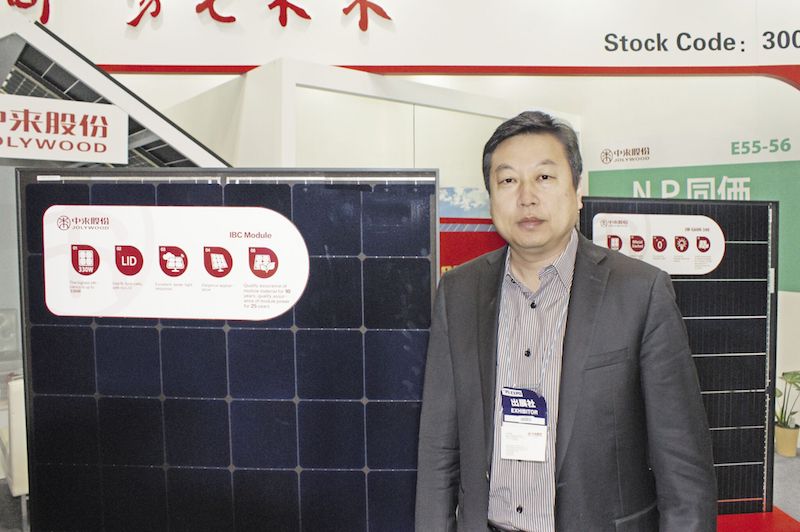The agreement will see 100 MW of Jolywood’s modules enter the Thai market, and 200 MW in the wider Southeast Asia region. The move comes as Jolywood eyes its entry into Southeast Asia. No further details were released.
Last February, the Chinese manufacturer broke ground on a 2.1 GW, US$239.9 million bifacial cell factory, in Taizhou, just north of Shanghai in China’s Jiangsu province.
Leading up to this, it signed a deal with Comtec Clean Energy in December 2016 under which Comtec will supply Jolywood with n-type super monocrystalline wafers until the end of 2018.
Meanwhile, in May 2016, Jolywood signed a deal to cooperate with Xian Longi Silicon Materials on the development of monocrystalline PV cells and modules.
This June, the company also joined forces with German provider of security, inspection and certification services TÜV Nord and China’s National Center of Supervision and Inspection on Solar Photovoltaic Product Quality (CPVT) to develop a new testing standard for bifacial n-type solar modules.
Efficiencies
Jolywood’s bifacial PERT technology uses special passivation technologies for the front and backside of the solar cell, which allows the light irradiating the backside to penetrate well into the cell and be converted into electricity.
In pv magazine tests, the company's product was measured to have a bifaciality ratio of 86.45%, averaged over the five tested modules. This means the efficiency at the backside reaches 86,45% of the efficiency which the module has at the front side.
This content is protected by copyright and may not be reused. If you want to cooperate with us and would like to reuse some of our content, please contact: editors@pv-magazine.com.




By submitting this form you agree to pv magazine using your data for the purposes of publishing your comment.
Your personal data will only be disclosed or otherwise transmitted to third parties for the purposes of spam filtering or if this is necessary for technical maintenance of the website. Any other transfer to third parties will not take place unless this is justified on the basis of applicable data protection regulations or if pv magazine is legally obliged to do so.
You may revoke this consent at any time with effect for the future, in which case your personal data will be deleted immediately. Otherwise, your data will be deleted if pv magazine has processed your request or the purpose of data storage is fulfilled.
Further information on data privacy can be found in our Data Protection Policy.